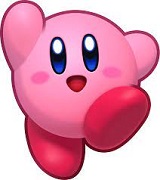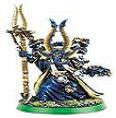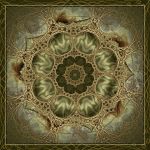|
Well, well, we don't know if the ten thousand years of darkness would've brought about an end to Humanity per se. Unless humanity only came about at the beginning of Raava's ten thousand years of light back during Wan's time, surely it wouldn't have been that bad, would it?
|
|
|
|

|
| # ? Jun 3, 2024 20:27 |
|
DrSunshine posted:Well, well, we don't know if the ten thousand years of darkness would've brought about an end to Humanity per se. Unless humanity only came about at the beginning of Raava's ten thousand years of light back during Wan's time, surely it wouldn't have been that bad, would it? We're told explicitly it would, yes. This is a thing stated onscreen multiple times. Vaatu himself ever says it. It also isn't a cycle of "ten thousand years of light followed by ten thousand years of darkness." It's 'whoever wins determines what happens." ImpAtom fucked around with this message at 01:31 on Aug 24, 2014 |
|
|
|
vaatu would have ended the poo poo out of the world
|
|
|
|
|
ImpAtom posted:Without Raava those ten thousand years of darkness would have amounted to the destruction of the human race. You're going "he was defeated, that means he is powerless" when that doesn't at all mesh with what was shown onscreen. It wasn't like he was beaten by Bolin shooting a rock at him. He was beaten only by a huge series of insane deus-ex-machinas that brought his one counterpart back from the seeming dead. I'm saying that that stuff is evidently mythology. The "ten thousand years of darkness" didn't amount to anything. Neither Rava nor Vaatu were particularly immense or unfathomable - you could fight them, with punches and fireballs. I'm willing to believe that they're eternally regenerating from each other, but while tumor cells are impressive for being functionally immortal I don't think they're particularly worthy of worship. Raava's clearly nice, and most reasonable, practical-minded people would probably want to hang out with her, accept her help, etc. Similarly, few would think the president of Republic City deserves to be insanely brutally murdered for having won an election. Neither, though, are going to provoke holy awe in this day and age, though at some point both might've. SpiderHyphenMan posted:I don't think it counts as selling out if you plan to kill them once you've gotten what you want. I mean like just work for her in exchange for pay, or ignore her and go chill on a mountain, or something.
|
|
|
|
Ferrinus posted:I'm saying that that stuff is evidently mythology. No it isn't! Korra explicitly saw the memories of Wan! She saw the thing that actually happened even if it was presented in a stylized way. Ferrinus posted:Neither Rava nor Vaatu were particularly immense or unfathomable - you could fight them, with punches and fireballs. No you couldn't. Even Wan couldn't fight Vaatu until he fused with Raava. Both of them and their power is tied to the balance of the world. Ferrinus posted:The "ten thousand years of darkness" didn't amount to anything. Because it was stopped. Also your argument seems to boil down to "something isn't Godlike unless it is completely unfathomable" which is an incredibly narrow definition of godlike even by the standards of real-world religions. ImpAtom fucked around with this message at 01:38 on Aug 24, 2014 |
|
|
|
you fuckin idiots of course they're gods and of course vaatu would have been an apocalypse
|
|
|
|
|
ImpAtom posted:No it isn't! Korra explicitly saw the memories of Wan! She saw the thing that actually happened even if it was presented in a stylized way. Right, and in the memories of Wan Raava and Vaatu both are big flatworms. You can throw rocks at them and hit and inflict damage. Their eternal cosmic struggle is a wrestling match and if you can set Vaatu free by shooting a fireball at the appendages that Raava is using to restrain him. quote:No you couldn't. Even Wan couldn't fight Vaatu until he fused with Raava. Both of them and their power is tied to the balance of the world. I'm pretty sure he could, and just wasn't strong enough to beat Vaatu until he fused with Raava. Like, he could shoot an icicle or airblast or whatever, and Vaatu would recoil from the impact. Vaatu would shoot a laser at him, and Wan would jump away, dodging the laser. quote:Because it was stopped. Yeah, I'd say that, too. Seems like not a lot was stopped, though. Seems like Vaatu's endgame was just to be a big monster - not really big, but, I dunno, bigger than a big building - and cause some damage by physically blowing things up, making vines bloom in inconvenient places, and making already-existing animals turn into spikier and more bloodthirsty versions of themselves.
|
|
|
|
Ferrinus posted:Right, and in the memories of Wan Raava and Vaatu both are big flatworms. You can throw rocks at them and hit and inflict damage. Their eternal cosmic struggle is a wrestling match and if you can set Vaatu free by shooting a fireball at the appendages that Raava is using to restrain him. Yes, here is the problem. You don't seem to have any definition of Godlike that isn't "literally omnipotent and unstoppable." Like if someone talked to you about Greek mythology you'd be like "man, don't give me that Hephaestus poo poo. That guy isn't a god. What sort of god has a bum leg?"
|
|
|
|
ImpAtom posted:Yes, here is the problem. You don't seem to have any definition of Godlike that isn't "literally omnipotent and unstoppable." Like if someone talked to you about Greek mythology you'd be like "man, don't give me that Hephaestus poo poo. That guy isn't a god. What sort of god has a bum leg?" Seriously, this is like that part in "Marvels" where those schmucks on the street are like "Pffft, if Galactus was powerful enough to eat the world, why were the Fantastic Four able to stop him? It's all hogwash, I tell ya!" SpiderHyphenMan fucked around with this message at 01:49 on Aug 24, 2014 |
|
|
|
ImpAtom posted:Yes, here is the problem. You don't seem to have any definition of Godlike that isn't "literally omnipotent and unstoppable." It's about presentation, and the circumstances leading up to the events that unfold onscreen. The mechanics behind the Avatar are demystified for the audience, put through their paces for the sake of demonstration, and then cleverly unraveled and usurped by normal people who happen to be clever and resourceful. Aang at the end of TLA wasn't a more awesome and godlike figure than Vaatu at the end of S2 of this show because of how many theoretical city blocks he could level at once, but because of how the whole thing was built up to and displayed. Vaatu was both overexplained and oversold, and was followed immediately by a villain who points out that this whole business is stupid and unworthy of respect - and, true to his word, that villain's able to repeatedly run circles around and otherwise chump what started out as a holy mystery. If Haphaestus shows up onscreen, and just like, knocks some buildings down, and someone swordfights him, it serves to demystify Hephaestus.
|
|
|
|
Ferrinus posted:It's about presentation, and the circumstances leading up to the events that unfold onscreen. The mechanics behind the Avatar are demystified for the audience, put through their paces for the sake of demonstration, and then cleverly unraveled and usurped by normal people who happen to be clever and resourceful. Aang at the end of TLA wasn't a more awesome and godlike figure than Vaatu at the end of S2 of this show because of how many theoretical city blocks he could level at once, but because of how the whole thing was built up to and displayed. Vaatu was both overexplained and oversold, and was followed immediately by a villain who points out that this whole business is stupid and unworthy of respect - and, true to his word, that villain's able to repeatedly run circles around and otherwise chump what started out as a holy mystery. No he isn't. Vaatu was only stopped by what amounts to a miracle or multiple miracles. You keep acting like they shot him with fighter jets or something. He was only stopped by Korra who literally connected with the fundimental force of the universe during a once-every-10,000-years-event. If Korra hadn't been there (and it was made pretty clear she was the only one who could do that) he would have been unstoppable. The fact that he was stopped doesn't mean he still wasn't a tremendous threat because it took something immensely metaphysical to stop him. Zaheer doesn't think it is stupid and unworthy of respect. The very first thing we get from him is him believing that his airbending is a sign that the universe supports him and his goals. He is an immensely spiritual person and to read him as someone who thinks it is all mythological hogwash involves ignoring the character's prime motivations. Also the Avatar being a human and having human weaknesses has been there from the start. It was a central part of Aang's story. Ferrinus posted:If Haphaestus shows up onscreen, and just like, knocks some buildings down, and someone swordfights him, it serves to demystify Hephaestus. Gods have been killed by mistletoe, outwitted by mortals, had small and petty squabbles or had extremely simple and human elements. The idea that they have to be unstoppable to be godlike is purely your own creation. ImpAtom fucked around with this message at 02:00 on Aug 24, 2014 |
|
|
|
Ferrinus posted:It's about presentation, and the circumstances leading up to the events that unfold onscreen. The mechanics behind the Avatar are demystified for the audience, put through their paces for the sake of demonstration, and then cleverly unraveled and usurped by normal people who happen to be clever and resourceful. Aang at the end of TLA wasn't a more awesome and godlike figure than Vaatu at the end of S2 of this show because of how many theoretical city blocks he could level at once, but because of how the whole thing was built up to and displayed. Vaatu was both overexplained and oversold, and was followed immediately by a villain who points out that this whole business is stupid and unworthy of respect - and, true to his word, that villain's able to repeatedly run circles around and otherwise chump what started out as a holy mystery. Is that what I'm seeing here?
|
|
|
|
quite the fucker posted:you fuckin idiots of course they're gods and of course vaatu would have been an apocalypse
|
|
|
|
Nephthys posted:But... Raava is a godlike force of balance. And the Avatar is the being merged with her. So the Avatar is literally what you just said: the personification of a godlike force of balance. To be honest, I'm pretty disappointed with how introducing Raava/Vaatu changes the whole mythology. One of the big themes of AtLA is that no one is born perfect and that all of the martial arts and "bringing balance to the four elements" are a metaphor for personal enlightenment. We even see Iroh go on a proto-Avatar's journey. He starts as a Fire Nation general whose assault on Ba Sing Se brings nothing but suffering to himself and others. It's only by traveling the world and mastering the philosophies of the four elements that he becomes the sagely giver of dadvice we know. Aang isn't born a messiah--it takes three seasons of hard work for him to grow from an irresponsible child to the world's savior. Having the Avatar be born with divine grace only serves to cheapen this. Also, Vaatu has to be the most boring spirit we've seen. It's not hard to find a way for mystical entities with decidedly non-human motivations to come into conflict with humans ("I want to chop down this forest", "I want to pollute this river", "I rather enjoy having a face"). But for some reason the authors still needed to fall back on the idea of an evil spirit who does evil demon lord things like monologue about a million years of darkness and attack our heroes with their army of disposable motivation-less goons.
|
|
|
|
Microcline posted:Also, Vaatu has to be the most boring spirit we've seen. It's not hard to find a way for mystical entities with decidedly non-human motivations to come into conflict with humans ("I want to chop down this forest", "I want to pollute this river", "I rather enjoy having a face"). But for some reason the authors still needed to fall back on the idea of an evil spirit who does evil demon lord things like monologue about a million years of darkness and attack our heroes with their army of disposable motivation-less goons. That was probably one of the biggest problems with Season 2. The Fire Lord may have been a mustache-twirling comic book villain with absolutely no depth or complexity, but at least his motivations were clear. Vaatu wants to destroy the world so he can....destroy the world. OK? Can we have a reason that isn't circular? Maybe he has some grudge? The world threw out all of his childhood photo albums? I dunno.
|
|
|
|
I want Korra to have to deal with depression and generally being a lovely Avatar, and that's what I got (e: expect in book 4) from the ending shot. I mean really, what good has she done for people? vvvv: airbending came back accidentally and as we saw a lot of people really don't want it, even coming close to suicide. Je suis fatigue fucked around with this message at 02:21 on Aug 24, 2014 |
|
|
|
She gave a bunch of dudes the ability to create tornadoes by flapping their arms, which is pretty cool. She also beat up some thugs in the first episode.
|
|
|
|
Je suis fatigue posted:I mean really, what good has she done for people? To be fair, what had the other Avatars done by her age? Aang is an exception, because he was forced to take on some heavy stuff at a young age, even for an Avatar. Most of them probably spent their teenage years doing straightforward training with various masters, as we saw for Roku. v v v Also, all of that! thexerox123 fucked around with this message at 02:25 on Aug 24, 2014 |
|
|
|
- Saved the whole entire world. - Saved Republic City from a corrupt bloodbending government official and his power-hungry revolutionary brother. - Saved the whole entire world from plunging into state of nature anarchy. - Returned the near-exterminated Air Nomad peoples to a state of healthy prosperity.
|
|
|
|
Hauldren Collider posted:That was probably one of the biggest problems with Season 2. The Fire Lord may have been a mustache-twirling comic book villain with absolutely no depth or complexity, but at least his motivations were clear. Vaatu wants to destroy the world so he can....destroy the world. OK? Can we have a reason that isn't circular? Maybe he has some grudge? The world threw out all of his childhood photo albums? I dunno. Presumably creatures like humans are influenced by Raava, so eventually similar creatures would come out of Vaatu. You see this to a certain extent with the dark spirits.
|
|
|
|
Android Blues posted:- Saved the whole entire world. Beat me to the punch. Korra's accomplished bigger things than Aang in her short time in action.
|
|
|
|
Buddhist observations: Obviously, a lot going on this season, though it’s far more theologically consistent than last season. But let’s focus on Zaheer. Name: Zaheer is an Urdu name. Urdu is a language spoken in India, and was a big part of Muslim culture in India before Partition (It’s now popular in Pakistan). This isn’t the first time the Air Nation has pulled from India. Almost all the Air Nation names come from the Himalayan region. Aang is a Sherpa name (meaning “bright one”), and the Sherpas are a Nepalese people who practice Tibetan Buddhism and immigrated from Tibet about 400 hundred years ago. Tenzin is the most popular Tibetan name in the world because the current Dalai Lama is named Tenzin Gyatso, and he mass-names people in ceremonies, and in accordance with the tradition, he gives people his own name. I would say in the Tibetan exile community about a third of the people are named Tenzin (it’s also gender neutral). Pema is also very very common, mostly but not always for women. Tenzin’s youngest child, Rohan is a Sanskrit name, originating in India and popular among Hindus. (The Tibetan language is also based on Sanskrit). Back to Zaheer, his name, like Aang’s, means “Shining, Luminous.” “Guru” “Laghima” – It’s actually a girl’s name, popular in India as being related to the Goddess Parvati. While the Airbenders are generally on the Eastern, Buddhist side of culture, there’s some Hinduism thrown into the mix. But “Guru” is actually a bit more interesting. We’ve seen it before with Guru Pathik. Pathik is another India-based name, Hindi language in origin, meaning “the traveler.” A guru, in both Induism and Buddhism, is someone you take as your spiritual master. This is generally a HUGE deal. If you learn from a person who happens to a guru, that’s one thing. If you take someone (living) as your guru, your entire spiritual journey relies on them, and you do everything they say, without question. A lot of modern people get into trouble with this, which is why the Dalai Lama advises people to not take someone as their guru after they’ve checked the person out for “about ten years.” If your guru says to jump off a bridge, you jump off a bridge. Once they’re dead, people can’t really take spiritual refuge in them in the same way, but they can take refuge in their teachings. Monk Gyatso (Tibetan – “Long-lived) wasn’t called “Guru” either because he wasn’t a spiritual master of his generation or whatever, the writers didn’t want him to have that title. The “Monk” title is a little odd, but I think it was their way of skirting what should have been his real title, Lama Gyatso, because that would have just been a little too obvious. “Lama” doesn’t mean monk – it means “wise” and it’s closer to guru, though here things get a little hazy between regions and cultures. There is one super famous Guru in Tibetan culture – Guru Rinpoché, whose name translates to “Precious Guru.” His real name was Padmasambhava, and he was born in what is now Afganistan but was then a kingdom of India in the 8th century. After becoming a spiritual master by meditating in a lot of caves in India and Nepal, he was invited to Tibet to bring Buddhism to the country, which at the time was controlled by a Bon priesthood. He was a Tantric practitioner and a yogi – another cross-culture Buddhist-Hindu spiritual occupation – who was said to be able to fly, tear open mountains, ride on a tiger riding on rainbows, and subdue the demons that lived in the Tibetan lands (like St. Patrick driving out the snakes of Ireland). He was “Lotus-Born” – he was born in a lotus flower and emerged fully-formed, without his feet touching soul, as an eight-year-old boy. He is considered a “second Buddha” in Tibet, and at least one Tibetan sect regards him as being as important as the first Buddha. (As a real historical figure, his influence on Tibetan history is greatly exaggerated) Actually, the ability of highly-realized yogis to do things like move mountains and fly and project their spirits elsewhere is pretty much taken for granted even today, though most of the important traditions are said to have died with the Chinese invasion of 1949 and the Cultural Revolution that followed. There are films on Youtube about modern practitioners in Tibet, often living in hiding, who live in caves he was said to visit and can pour freezing water over themselves without getting cold. (No images of them flying, though) I don’t think Guru Lahima’s poem, which Zaheer turns into a mantra (something meant to be repeated over and over as a meditation practice), is pulled from any source, but it lines up neatly with Airbending philosophy and what Guru Pathik told us in A:TLA about letting go of worldly attachments. Of course that’s easier said than done; it’s easier if you live in a cave, own one set of clothing, only visit your teacher, and rely on food donated by locals who leave it outside your door. It’s another if you have a family and participate in society. Not all yogis or even monks are required to be celibate (Guru Rinpoché helped his female consorts attain Enlightenment by having sex with them, which sounds sketchy when I say it that way), but they are required to have no attachments, which was one of the reasons Aang had so many problems achieving the Avatar state in season 2 and why, in perhaps his greatest triumph, he refused to use it to kill Ozai, not because it required detachment, which he had achieved, but because the negative karma associated with killing someone would have burdened him (and the new air nation) forever. It’s interesting that after years of living in a cave, Zaheer only attains his limited Enlightenment (he misses the forest for the trees with the whole anarchy thing, just as Tenzin misses it with too much structure) after his last earthly attachment, P’li, dies. Rather than be stricken by grief he is able to let go. And it’s also part of yogi culture that people could gain these powers and use them for evil. Tibetan history’s most famous yogi, Milarepa, originally learned Tantric magic to get revenge on his in-laws by sending a giant scorpion to kill everyone at a wedding after they’d cheated his mother out of her inheritance, and he spent the rest of his life repenting for it. When you see him pictured, he’s usually a skeleton with skin turned green from eating only nettle fruit, but he eventually attains Enlightenment. Obviously, Zaheer got a lot of wrong. I don’t think Guru Laghima would have at all identified with him. Buddhism provides instructions for personal spiritual development, very often at the expense of engaging in society, but it isn’t anti-hierarchical. Someone without a teacher can get into a lot of trouble (or just go crazy in a cave, which happens more than they advertise), and there’s a reason this teacher needs to be a living person and you need to rely on them for your own development. When important teachers are about to die, they often pass on their secrets to their most important students, then task them with finding their reincarnations and continuing the cycle by passing on their wisdom to their next lives. Usually the teachers of young children who are recognized reincarnations (rinpoches) are former students themselves. This is referred to as the “golden mala” (rosary) in the spiritual lineage of the Dalai Lama and the “diamond mala” in the spiritual lineage of the Karmapa. (This very often gets hosed up by bad or greedy or feuding students, or China tries to gently caress it up by putting important teachers or reincarnations in jail, so it’s not a perfect system). Finally, let’s talk about Zaheer’s clothing: He doesn’t identify with the Air Nomads, so he doesn’t wear the yellow-red of Tibetan Buddhists, but his clothing is still significant. Tibetans generally wear skirts or gowns (when Tibet was closed to the West, they regarded people who did not wear long shirts over their pants as “monkeys” because the cut of their legs was visible). Obviously this isn’t practical for Airbenders, who are always leaping and floating, and jumping, so everyone wears pants. He does, however, wear the “left side over right” robe on his upper chest. He’s also wearing a vest with side shoulders, called a tongak. This is unique to Tibetan Buddhism. As the legend goes, Indian Buddhists kept their right arms totally exposed, but when they went to Tibet, they were incredibly cold, so they adopted vests that would at least protect their upper arms. These vests are always maroon, though they sometimes have yellow panels, which differ in meaning today but are supposed to signify an accomplished monk. Here’s an example of a tangak: http://www.tibetanspirit.com/all-items/tongak-vest-maroon/ As a side note, they generally wear a vest under it for more warmth called a ngulen (blouse) that can be either gold or red. It’s astoundingly similar to what Tenzin’s daughter Jinora is wearing when she takes off her hooded robe in the final shots of the season. http://www.tibetanspirit.com/all-items/blouse-ngulen-saffron-cotton-blend/ Today Tibetans are a bit more casual about their robes, partially because cotton tank-tops are so cheap in India and many monk clothing shops sell them, and partially because they rely on donations from the community for their clothing, so they’re not always in silk or wool.
|
|
|
|
ImpAtom posted:No he isn't. Actually, it's purely your own creation. You said "unstoppable", not me. In fact, I compared end-of-TLA-Aang favorably to end-of-S2-Vaatu while mentioning in the same breath that Aang was probably possessed of less raw durability/destructive power. It's not that Vaatu wasn't a threat. He was certainly a threat, just as a nuclear missile or a supermassive asteroid is a threat. It's just that he, along with everything else of LoK, has been schematized in a really straightforward and materialistic way. He's got these certain rules, so these mortal who are aware of these rules set up and execute their plan and all the predicted things happen and so they avail themselves of this previously-inaccessible magic power... it's not mysticism, it's wizardry, the planned harnessing and exploitation of something nominally numinous and transcendent. SpiderHyphenMan posted:So you see an ancient being fuse with a human, grow to over a thousand feet tall, travel instantaneously to the other side of the world, grow massive vines from beneath concrete to create forests that house beings from another plane of existence, and demonstrate that he is unaffected by the force of an entire navy, and you say he's been "demystified" because he lost a fight to a GIANT BLUE SPIRIT when he was vaporized with magic kung-fu? Yes. See? You're doing it yourself. Vaatu proves to be as dangerous as, say, the spaceship that parks over New York at the beginning of Independence Day. We're discussing him in terms of his demonstrated superpowers. It's not about the power level, though, it's about the presentation and role in the plot. What happened in TLA Season 2 when someone tried to trigger and exploit the Avatar State? What happened just now at the end of LOK Season 3 when someone tried to trigger and exploit the Avatar State? Was Ozai just, like, possessed of poor intel? Would he have won if he'd just brought some [Hg] along?
|
|
|
|
Jeremy Zuckerman posted the music from the final scene on his soundcloud.
|
|
|
|
Android Blues posted:- Saved the whole entire world. -opened the spirit portals and let out a bunch of spirit monsters and strange things happening that no one can change like the vines -I'm gonna have to rewatch season 1 but what even was their end game? End the Avatar? Be the president? And I don't feel like anti bender sentiment was really taken care of when the mask man died. -She kind of failed in this already though, the Earth Queen is dead and Ba Sing Se is chaos, other places may follow in their footsteps. Republic City might be alright, but people might not like the idea of a Fire Lord anymore. -was an accident and again, people who are getting these powers don't necessarily want them. She's just sort of done some things that changed the entire world, as a viewer look like they're for the greater good, but imagine some spirit vines just busted up your house because the Avatar changed something why doesn't she just stop meddling with the spirits it was fine the way it was
|
|
|
|
Je suis fatigue posted:-was an accident and again, people who are getting these powers don't necessarily want them. Airbending powers returning was an accident, but saving a bunch of airbenders from the Earth Queen certainly wasn't. How do you think the Air Nomad nation would be doing without that intervention? And by the end, the air nomads are made up of people who ultimately embraced their abilities. Nobody's forcing airbenders to join. thexerox123 fucked around with this message at 03:09 on Aug 24, 2014 |
|
|
|
Je suis fatigue posted:-opened the spirit portals and let out a bunch of spirit monsters and strange things happening that no one can change like the vines 
|
|
|
|
Hauldren Collider posted:That was probably one of the biggest problems with Season 2. The Fire Lord may have been a mustache-twirling comic book villain with absolutely no depth or complexity, but at least his motivations were clear. Vaatu wants to destroy the world so he can....destroy the world. OK? Can we have a reason that isn't circular? Maybe he has some grudge? The world threw out all of his childhood photo albums? I dunno. I don't understand a lot of the hate Ozai gets. Not every antagonist needs to be sympathetic or have an excuse. We can all recognize some historical figure analogous to him, and there are still people today who make the "our culture/race is superior to other culture/race and we must uplift/exterminate the savages" argument. Keeping him offscreen serves several purposes. It establishes 1. that the antagonist's network and reach are vast and entrenched. Fighting a war of attrition is impossible and killing/capturing him would only be a setback 2. that our protagonist is nothing more than a nuisance in his eyes In contrast, LoK villains are always introduced early, are always obsessed with the Avatar, have less materiel resources, and (with the exception of the Red Lotus) can all be defeated by killing/capturing them. Amon and Zaheer (and his anti-Gaang) are both stylish and could be interesting in how they embody Korra's weaknesses, but it never really goes anywhere with this.
|
|
|
|
Ozai would have been pretty terrible if he were the only antagonist, but, considering that he was just the unifying authority behind an extensive cast of much more colorful villains, it was fine. He didn't need to be either colorful or sympathetic because we had other people for that.
|
|
|
|
Awesome post, thanks for making this 
|
|
|
|
PupsOfWar posted:Ozai would have been pretty terrible if he were the only antagonist, but, considering that he was just the unifying authority behind an extensive cast of much more colorful villains, it was fine. He didn't need to be either colorful or sympathetic because we had other people for that.
|
|
|
|
I don't really have a problem with Ozai per se, he was just way less interesting than any of the other villains.
|
|
|
|
This season owned owned owned! Here's a question: What other TV series has rised out of a death spiral like a loving phoenix before? I was fully expecting S3 of Korra to be the Revenge of the Sith of the Avatar universe. Like, that's the real miracle right there.
|
|
|
|
dj_clawson posted:Buddhist observations Nice commentary, thanks for weighing in. AshB posted:Korra's accomplished bigger things than Aang in her short time in action. Hard to compare legacies, but Korra's right up there for sure. I felt like those who discounted her or said something along the lines of "We don't need the Avatar!" were also those who would also take advantage of her absence. Speaking of which: the finale moment that made me laugh most is when the RC President showed up at the end and said, with heartfelt emotion, "Who will protect us if the Avatar is out of action?" I DON'T KNOW LET'S EXPEL HER FROM THE CITY AGAIN FOR POLITICS AND FIND OUT By the way, if I want to get an friend who's an adult into ATLA, where should I have them begin? I've tried watching from ATLA Book 1 and Season 1 Episode 1 still definitely feels like a kid's show. Maybe I'm being stupid but I'd be kinda embarrassed to recommend it to someone starting at that point.
|
|
|
|
Thundercracker posted:This season owned owned owned! Here's a question: What other TV series has rised out of a death spiral like a loving phoenix before? I was fully expecting S3 of Korra to be the Revenge of the Sith of the Avatar universe. Avatar: The Last Airbender.
|
|
|
|
Microcline posted:I don't understand a lot of the hate Ozai gets. Not every antagonist needs to be sympathetic or have an excuse. We can all recognize some historical figure analogous to him, and there are still people today who make the "our culture/race is superior to other culture/race and we must uplift/exterminate the savages" argument. Keeping him offscreen serves several purposes. It establishes This is where comparisons to the Star Wars prequel trilogy fall flat, because while those films were trying to "recapture the magic" of the Original Trilogy, as evidenced by how it desperately mined iconic imagery in order to attempt to connect the two trilogies, Korra embraces its fundamental differences from its predecessor. That's just what Mike and Bryan want to do. For better or worse.
|
|
|
|
SpiderHyphenMan posted:Legend of Korra isn't really designed for that sort of epic story against a foe with vast and expanding political power. It's always been about villains with a personal interest in the Avatar, because, I and I need to stress this point, Legend of Korra and Avatar The Last Airbender are fundamentally different shows. The only connection between the OT and the PT is that the Jedi are lying deceitful shitbags, which both series point out explicitly. Actually there are quite a few parallels between the OT and ATLA - in both series, the final chapter has a climax of the protagonist saying "gently caress you mentors, I'll find my own way" and they do so. A hypothetical prequel series about Avatar Roku, by contrast, would follow the Prequels quite well - both would feature the rise of an empire and the death of the previous [super people] by way of incompetence. computer parts fucked around with this message at 04:00 on Aug 24, 2014 |
|
|
|
SpiderHyphenMan posted:Legend of Korra isn't really designed for that sort of epic story against a foe with vast and expanding political power. It's always been about villains with a personal interest in the Avatar, because, I and I need to stress this point, Legend of Korra and Avatar The Last Airbender are fundamentally different shows. Yes, embracing fundamental differences and rising above mining iconic imagery indeed, as evinced by: metalbending, Katara, Iroh, Zuko, bloodbending, combustionbending, chi-blockers...
|
|
|
|
Mazreal posted:Avatar: The Last Airbender. Season 1 of Aang was a really good kids show. Season 1 of Korra was just terrible.
|
|
|
|

|
| # ? Jun 3, 2024 20:27 |
|
I think you'd have to be kind of bonkers to call S1 of Korra "just terrible", but a lot of people have very strong opinions on it so it's possible I'm outvoted. I think at very worst it was an extremely strong and ambitious season with a couple of hiccups sticking the landing.
|
|
|






















